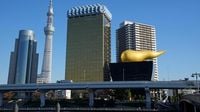In a dramatic turn for one of Japan’s most prominent beverage makers, Asahi Group Holdings Ltd. has begun to recover from a crippling cyberattack that forced the company to halt production and shipments across most of its domestic factories. The incident, which unfolded at the end of September 2025, disrupted the flow of the company’s famed Super Dry beer and a host of other products, sending ripples through Japan’s food and beverage industry and raising fresh concerns about cybersecurity in critical manufacturing sectors.
According to Bloomberg, Asahi restarted six of its breweries in Japan on October 2, 2025, after a cyberattack forced the beer maker to shut down production and shipments for several days. The company, which operates roughly 30 plants nationwide, had to pause operations at most of its facilities, though it did not immediately disclose how many were affected in total. A spokesperson told Bloomberg that Asahi is still investigating the root cause of the attack and is assessing its potential impact on the company’s earnings.
The attack, first detected on September 29, 2025, was confirmed to be a ransomware incident, according to The Jiji Press. The breach led to a systems failure that crippled order-taking, production, and distribution. Asahi’s flagship Super Dry beer, a staple in bars and homes across Japan, was among the products most directly affected. The company found itself facing a backlog of orders, which it began to address manually as soon as limited operations resumed.
By October 6, 2025, all six of Asahi’s domestic beer factories had restarted operations, though the company was quick to caution that the factories were not yet fully operational. As reported by Just Drinks, two of Asahi’s soft-drinks plants also resumed operations on October 2, but five other soft-drinks factories would only come back online gradually, in accordance with shipment demands. The company has been able to restart brewing and shipping its flagship Asahi Super Dry beer, but the full range of products was still some way from returning to shelves.
Asahi’s food division, which produces items such as baby food and miso soup, also faced disruptions. All seven food plants resumed operations on October 3, but, like the beverage factories, were not yet running at full capacity. The company’s CEO, Atsushi Katsuki, issued a public apology for the disruption, stating, "I would like to sincerely apologise for any difficulties caused to our stakeholders by the recent system disruption." He added, "We are continuing our investigation to determine the nature and scope of the potential unauthorised data transfer. We are making every effort to restore the system as quickly as possible, while implementing alternative measures to ensure continued product supply to our customers. We appreciate your understanding and support."
The company’s response to the crisis has been a mix of old-fashioned and modern solutions. With computer systems down, Asahi reverted to taking orders by telephone and processing them manually, a move reminiscent of pre-digital business operations. Officials told Kyodo News that customer service operations, which had also been suspended, were expected to resume within the week via telephone, allowing the company to accept product inquiries once more.
The full extent of the cyberattack’s impact remains unclear. Asahi is still investigating whether sensitive data was stolen in the ransomware breach. The company has yet to determine when its computer systems will be fully restored, and a complete resumption of output at all 30 factories is not expected soon. In addition to operational headaches, the incident forced Asahi to postpone the launch of 10 new products, including several beers, as reported by The Jiji Press.
Despite the challenges, Asahi has laid out a roadmap for recovery. According to Just Drinks, the company plans to restart production of more SKUs next week. Shipments of 16 products, including Asahi Dry Zero, Asahi Zero, Clear Asahi, and the whisky brand Black Nikka Clear, are slated to resume from October 15, 2025. This phased approach reflects both the complexity of restoring production lines after a cyber event and the need to prioritize the most popular and profitable products first.
The attack on Asahi is the latest in a series of high-profile cyber incidents targeting the food and beverage sector globally—a reminder that even companies with deep resources and sophisticated operations are not immune. Ransomware attacks have become increasingly common, with hackers seeking to disrupt business operations and extract payment in exchange for restoring access to critical systems. In Asahi’s case, the attack not only halted production but also forced the company to delay new product launches and may have led to unauthorized data transfers.
For Japan, a country where beer is woven into the fabric of social life and tradition, the disruption was felt keenly. Asahi Super Dry, in particular, holds a special place as one of the nation’s top-selling beers. The company’s quick move to ship this flagship product as soon as possible, even if only via manual order processing, speaks to its importance both commercially and culturally.
Industry analysts say the Asahi incident should serve as a wake-up call for manufacturers everywhere. The interconnectedness of modern production and distribution means that a single systems failure can cascade quickly, affecting not just a company’s bottom line but also its relationships with retailers, suppliers, and consumers. Asahi’s experience shows the value of contingency planning and the need for robust cybersecurity defenses, especially as ransomware attacks grow in sophistication and frequency.
Looking ahead, Asahi faces a period of uncertainty. The company must not only restore its IT infrastructure and clear its order backlog but also regain the confidence of its customers and partners. The financial impact of the shutdown is still being assessed, and it may be some time before the full cost—both monetary and reputational—is known.
Still, there’s a sense of resilience in Asahi’s response. By blending manual processes with ongoing digital recovery efforts, and by communicating openly with the public and stakeholders, the company is working to steady itself after a major jolt. As the investigation continues and more products return to market, Asahi’s experience will likely be studied as a case in crisis management—and as a stark reminder that in today’s world, even a centuries-old beverage company must be ready to defend itself against twenty-first-century threats.
For now, Japanese consumers and Asahi’s global fans alike are watching closely, hoping that their favorite drinks will soon be flowing freely once again.





